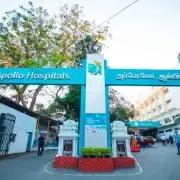Can I Travel on a Tourist Visa for Treatments from Bangladesh?
In This Article
Can I Travel on a Tourist Visa for Treatments from Bangladesh?
Jaymala
Updated on June 06, 2024
Medically verified by Dr. Arya
Fact checked by Dr. Pournami

Medical Travel
10 min read
If you are travelling for treatment from Bangladesh, you might be anxious to know whether you can travel on a tourist visa or not.
Karetrip is here to give you a detailed structure required for this purpose so that you are well aware of all the details while travelling on a tourist visa for treatment from Bangladesh.
The simple answer is, yes, you can travel to India for medical treatment on a tourist visa, but there are certain specific conditions that you must keep in mind.
First thing first, you will have to get a medical permit on your tourist visa from the FRO (Foreigners' Registration Office) in India.
With a medical permit, you can do treatment in any Indian hospitals on a tourist visa, if you are required to stay in India for not more than 180 days or more than the stipulated number of days mentioned on your tourist visa.
Requirements for Tourist Visa
-
Your passport should be valid for at least 6 months.
-
You have to fill out a visa form. It may be online also.
-
You have to attach a passport size photo of yours at the given format size.
-
You have to show proof of your travel plans.
-
You have to provide details of your sufficient funds.
-
Provide information about where you plan to stay during your visit.
-
Obtain travel insurance that covers medical emergencies, etc.
-
You may be required to provide proof of your medical examination.
Specify the Purpose of your Medical Treatment
Clearly mention that seeking treatment abroad is necessary and look for treatment options.
-
Find out reputable medical facilities in the destination country that specialise in your treatment.
-
Make an elaborate treatment plan with your doctor.
-
Evaluate the cost of medical treatment abroad, including consultation fees, hospitalisation, etc.
-
Make sure you do not have a language barrier and ensure effective communication with doctors. You can take help of a translator also.
-
Gather and organise your medical records. Ensure you have copies of these documents to provide to the medical services abroad.
How will you Arrange for the Trip?
-
Book your flights in advance. Arrange transportation from the airport to your accommodation and in between. If needed. Consider options such as airport shuttles, taxis, or private car services.
-
Look for an accommodation that is located near the medical facility where you'll be receiving treatment. Make sure you have medical equipment storage, kitchen facilities. Nearby restaurants or a grocery store which is required during your stay.
-
Read your travel insurance policy thoroughly and make sure that it provides adequate coverage for medical emergencies, including treatment abroad, etc.
-
Make sure you have the necessary visas for entry into the destination country.
-
Get an emergency contact information for the medical facility, your accommodation, etc. which might be required by you.
-
Ensure you have sufficient supply of any necessary medications for the duration of your trip. Keep your medications in their original packaging with prescription labels to avoid any issues during customs inspections.
 10 min Read
10 min ReadBooking Budget Friendly Accommodation Near Apollo Hospital, Greams Road
 10 min read
10 min readWhere can I exchange Bangladeshi Taka To Indian Rupees?
 10 min read
10 min readUnique Bangalore: Unusual & Intriguing Places to Explore While Staying In The City For Treatment
Get a Callback Now
Estimate the Total Expenses
-
Calculate the total approx. expenses of your medical treatment, including consultations, procedures, hospitalisation, medications, etc.
-
Calculate the cost of accommodation for the duration of your stay, including hotel stays near the medical facility, transportation expenses, airport transfers, taxis, public transportation, and rental cars.
-
Don’t forget the visa application fees required for entry into the destination country.
-
Calculate the cost of travel insurance premiums, make sure they cover medical emergencies. Read the policy coverage limits thoroughly. Do not neglect the foreign transaction fees charged by banks or credit card companies when using cards abroad.
-
Determine the most convenient and cost-effective payment methods for your expenses abroad. Inform your bank of your travel plans to prevent any unexpected card holds while you are abroad.
Consider the Legal and Insurance Procedures
-
Check for the medical treatment plan while you undergo abroad. Take into consideration the risks, benefits, and outcomes before proceeding with treatment.
-
Make yourself familiar with your rights as a patient in the destination country, including access to medical records.
-
Stick to the laws and regulations of both your home country and the destination country. Consider the legal requirements related to medical treatment, or visas, etc.
-
Go through all the healthcare standards and regulations in the destination country to ensure you receive good care.
-
Check for existing health insurance policies. It should provide coverage for medical treatment abroad.
-
Ensure your travel insurance includes medical evacuation coverage, which might be necessary in the case of any serious issue.
Follow-Up Treatment
-
You should follow any post- treatment instructions provided by your doctor.
-
Schedule an appointment with your doctor to monitor your progress.
-
Make an open communication with your doctor while you stay abroad.
-
Ensure that your medical records, including treatment summaries, and medication histories, are transferred to your primary care physician to ensure that your doctors have access to required information.
-
Take your medications effectively, and adhere to prescribed dosages and schedules.
Consider Language and Cultural Aspect
-
You can take help of a translator, if you're not fluent in the local language. Many hospitals and medical facilities offer language help services for international patients.
-
Learn about the cultural norms and customs of the destination country to avoid any misunderstandings. Respect cultural differences in communication styles. Be mindful of any religious practices or dietary restrictions, if required. Keep an open communication with your healthcare providers to ensure they are accommodated respectfully.
-
Make yourself well versed with the organisation of hospitals, and medical specialties. Clarify all the needed questions, if you're unsure about any aspect of your care. Be open to alternative healing practices that may be common in the destination country.
-
Visualise your medical journey abroad as an opportunity for cultural exchange and learning.
Travel Restrictions
-
Stay updated on travel advisories and restrictions issued by both your home country and the destination country. Check official government websites, and embassy advisories. Make sure you meet all the necessary requirements of the destination country.
-
If there is any recommendation throughout your journey, make sure you follow that. It may be simple hygiene practices.
-
Follow and co-operate any travel testing requirements imposed by your home country or the destination country. Complete that within the specified time.
Find out your destination point and make sure you have all the necessary documents.
Take help of your doctor and understand your treatment plan and collect medical records.
Calculate the total cost of your treatment including travel, accommodation, and insurance.
Make sure you know all the legal requirements.
Schedule and attend follow-up appointments, transfer medical records, and continue treatment as recommended.
Give due respect to local customs, arrange for translation services if needed.
Stay informed about travel restrictions, and follow health and safety protocols.
Have planned arrangements, be safe, and prioritise your health.
Source Links
Ministry of home Affairs
Al Afida Medi Tour
Ministry of External Affairs

